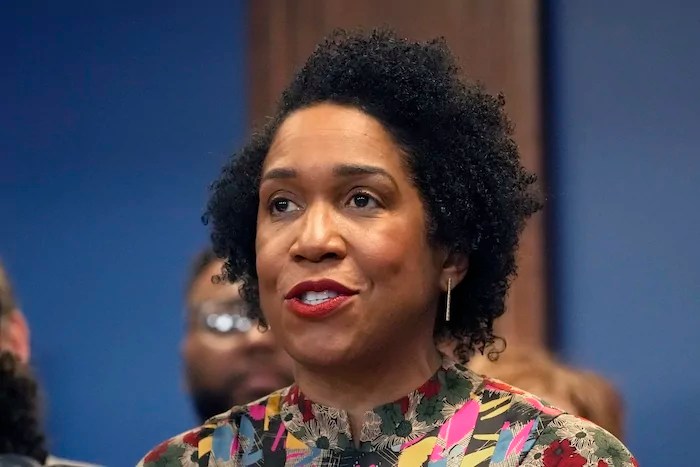Illinois politicians’ pockets deepen with new law removing contribution caps – Washington Examiner
Summary:
The summary is about a new law enacted in Illinois that removes contribution caps for political parties in both primary and general elections. State legislators approved this law, allowing unlimited campaign contributions to candidates’ war chests. State Rep. Maurice West carried the bill, while State Rep. Blaine Wilhour opposed it, citing concerns about increased political party power. Additionally, the law also includes provisions related to slating candidates to fill vacancies. However, there is disappointment from Reform for Illinois as the law did not address urgent needs such as requiring disclosure of deepfake election communications, leaving voters without essential tools to distinguish fact from fiction.
Illinois politicians’ pockets deepen with new law removing contribution caps
(The Center Square) – Ahead of Illinois’ Nov. 5 election, state legislators approved a measure Gov. J.B. Pritzker enacted into law that contains multiple provisions impacting elections. One provision impacts how parties can spend campaign money.
The law allows for political parties, like the Democrat Party of Illinois and the Illinois House Republican Organization, to funnel unlimited campaign dollars into candidates’ war chests for both primary and general elections. State Rep. Maurice West, D-Chicago, carried the bill in the House and state Rep. Blaine Wilhour, R-Beecher City, opposed the measure.
“Were they [the political parties] not powerful enough before?” asked Wilhour.
“We’re not making them powerful,” said West.
“Money is power,” said Wilhour.
“There’s no limit in the general election and this [bill] is making it in parity with the primary election as well,” said West.
Prior to House Bill 4488, campaign contribution caps were only applied to primary races. Now both primaries and general election candidates can receive unlimited funds from their political parties.
State Rep. Dan Caulkins, R-Decatur, questioned West on the House floor.
“With the unlimited campaign contributions in a primary, does that apply to every candidate, like those running for the Illinois Supreme Court?” asked Caulkins.
“Yes sir,” said West. “They can receive unlimited campaign contributions from the party only.”
The law takes effect immediately.
Also this legislative session, West supported a separate election bill, Senate Bill 2412, that changed the rules for slating candidates to fill vacancies. That law is currently under the microscope of the Illinois Supreme Court. Candidates, like Leslie Collazo, filed a lawsuit challenging Illinois’ hastily changed election law.
HB 4488 originally was going to establish a Crohn’s and Colitis Awareness Week but later was gutted and replaced with an elections omnibus. SB 2412 was originally a bill about child welfare but was gutted and replaced to be the slating change.
Reform for Illinois said they’re disappointed that the omnibus bill didn’t address urgent needs like requiring disclosure of deepfake election communications. Executive Director Alisa Kaplan said this omission means Illinois voters will lack essential tools to separate fact from fiction.
“So there were concerns from both sides of the aisle and there were obvious concerns for democracy and our election but somehow it didn’t make it in,” said Kaplan. “They were supposed to address deceptive election communications that were generated by artificial intelligence, so deepfakes. It wouldn’t have banned the use of deceptive communication, it would have just required a disclosure on them. The idea was that voters should know what they’re looking at.”
The New Hampshire Attorney General’s office said it was investigating reports of an alleged robocall that used artificial intelligence to mimic President Joe Biden’s voice to tell voters to not show up to the polls for the primary election.
While deepfakes were not addressed, Illinois’ omnibus bill did address how candidates fund their campaigns.
State Rep. Kevin Schmidt, R-Cahokia Heights, voted against the measure in the House.
“Unlimited funds in the primary, it really only helps the establishment and it doesn’t give a fair shake to newcomers,” said Schmidt.
Reform for Illinois said removing the caps on party contributions is a significant move that reflects party leaders’ intent to gain more control over primary elections, which are often the only meaningful contests in a state with many uncontested districts statewide.
" Conservative News Daily does not always share or support the views and opinions expressed here; they are just those of the writer."





Now loading...